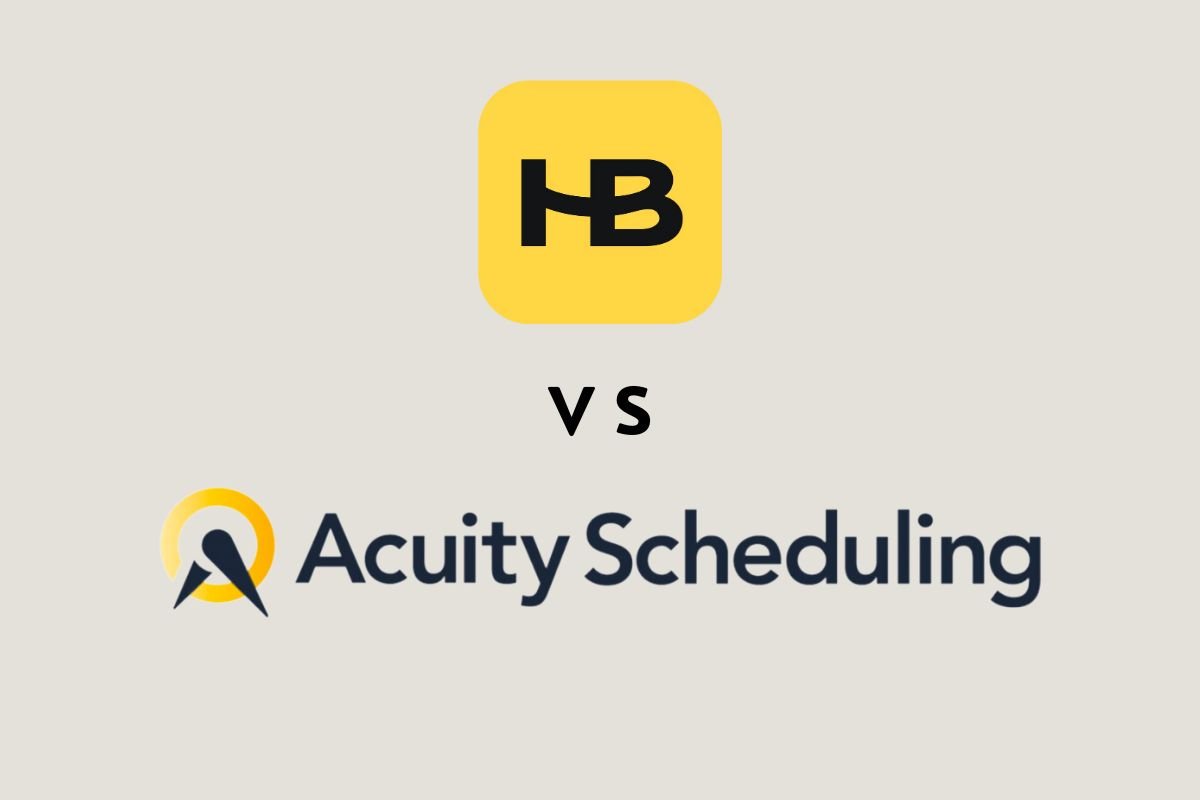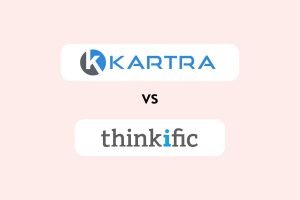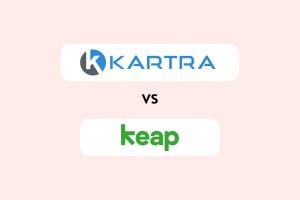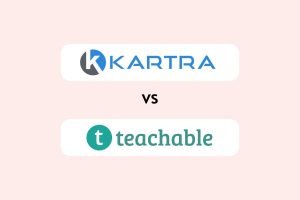Last updated on February 24, 2024
Acuity Scheduling is widely regarded as one of the top scheduling tools available today. However, there may be instances where professionals need more than just appointment booking. In such cases, Honeybook emerges as a compelling option for an upgrade from Acuity.
In this Honeybook vs Acuity comparison, we’ll address the two programs’ features, pricing, and differences, so you can assess which software suits you better. Additionally, we will recommend a selection of top-notch coaching software options as potential alternatives.
Table of Contents
Honeybook vs Acuity: An Overview
Honeybook is a comprehensive management solution that simplifies the process of scheduling, facilitating payments, and generating documents through its extensive collection of templates. Initially, it was targeting freelancers and photographers, but Honeybook has expanded its reach to become a preferred option for coaching management as well. To get a better understanding of this tool, you can read our in-depth review of Honeybook.
Acuity Scheduling is more than just an online appointment scheduling software as it offers a comprehensive suite of features. With Acuity, you can automate reminders, facilitate sales of packages, classes, and memberships, and generate detailed reports on appointments, no-shows, and performance which empowers your business to optimize scheduling processes.
Pricing & Free Trial
If you have a specific software budget in mind, considering the pricing and trial options is crucial. Let’s examine Honeybook and Acuity’s pricing structures to assess how well they align with your budgetary plans.
Pricing Plan
Honeybook offers a pricing structure consisting of three tiers, where the entry-level plan is priced at an affordable $16/month. Regardless of the plan you choose, you can enjoy unlimited clients and projects, with the variations lying in the available features. If you use our link, you can take advantage of a 50% discount on annual and monthly plans.

Acuity has a similar pricing structure, with the first of three tiers starting at $16/month when paid annually. Each of the available plans provides access to a wider range of features and capabilities as you move up. The basic plan doesn’t support selling subscriptions and memberships, offering appointment packages, or text message reminders, among other things.
Free Trial
If you wish to give Honeybook a try, you have the option to sign up for their 7-day free trial without providing credit card information. With an annual subscription, you’ll receive the first two months at no cost.
Acuity has a trial period of the same length, so for 7 days, you can use all the features. Just like with Honeybook, you don’t need to provide any credit card details when signing up.
Features
To decide whether software suits you, you’ll need to know what it can handle. That’s why we’ll delve into the complete list of features of these two platforms and emphasize their unique functionalities.
Honeybook Features
- Scheduling
- Contract signing
- Invoicing
- Proposals
- Payments
- Automation
- Templates for pricing guides and brochures
- Mobile app
- Integration with Gmail, iCloud Mail, Yahoo Mail, Outlook Mail, AoI Mail, Google Calendar, Zoom, QuickBooks, Calendly, and Zapier
With Honeybook’s help, you can finalize the agreements with your clients without hassle. The software provides contract signing, sending proposals, and collecting payments, so you can get everything done within a single platform. With the proposal feature, you can send invoices, contracts, and payments to clients in a single, streamlined process.
Honeybook has a stunning collection of templates, allowing you to craft attractive forms, welcome packets, brochures, marketing materials, and more with minimal effort.
The automation feature automates repetitive tasks and workflows to save you valuable time. Customizable automation workflows can streamline your business processes, such as sending reminders, follow-ups, files, and more. You can set various triggers that will set an activity in motion based on dates, client behaviors, and other criteria.
Acuity Features
- Scheduling
- Customization
- Reminders
- Payments
- Integrations with Google Analytics, Google Calendar, iCloud, Outlook.com, Stripe, Square, Zapier, PayPal, Google Meet, Zoom, GoToMeeting, Exchange, Office 365, and more
Some of the features that make Acuity more than just a scheduling tool are its ability to offer memberships, gift certificates, packages, or group classes, and to collect payments via integrations with PayPal, Stripe, and Square.
Acuity can help you reduce no-shows by automatically sending customized reminder texts and emails to your clients.
The tool provides the flexibility to align with your brand’s identity, enabling you to incorporate your logo and customize the scheduler’s colors and content to reflect your brand’s design.
Honeybook vs Acuity – How Are They Different?
Let us now delve into the different features of these two platforms so you can get a better idea of what sets them apart.
Automation
Acuity can send automatic reminders, but its automation abilities end there. On the other hand, Honeybook has a vast range of options that can set your business on autopilot. You can automate various activities, from payment reminders to following up with a questionnaire to automatically sending a welcome packet to new clients.
Client Agreements
Honeybook is a more comprehensive solution for closing deals with clients. It supports contract signing, proposals, invoices, and payments, while Acuity solely integrates with a limited number of payment methods. Honeybook also simplifies the agreement process as it unifies contracts, invoices, and payment requests in one outreach—sending a proposal.
Payment Processes
Acuity allows you to accept online payments via integrations with PayPal, Stripe, and Square. Honeybook’s payment options are much more diversified as you can accept credit cards, debit cards, bank transfers, cash, checks, and set recurring payments. Your clients will also be able to make payments with ease from any device. Moreover, Honeybook also supports payment tracking so you can stay on top of all payment processes.
Templates
Ready-made templates can save you a lot of time and effort, and Honeybook’s template library will equip you with various template options such as pricing guides, contracts, mood boards, timelines, request for reviews, and so on. Acuity scheduling doesn’t offer this time-saving functionality.
Customer Support
Honeybook has a 4.8 rating for customer service on Capterra, and reviews are overwhelmingly positive. You can contact them via email 7 days a week. For any billing inquiries, they can be reached by phone.

Acuity Scheduling has a 4.7 rating for customer service on Capterra. Many reviews describe the efforts of support agents as excellent and on point. Their customer service is available via email at any time, any day of the week.
Conclusion – Honeybook or Acuity?
When it comes to choosing the superior software, we would have to side with Honeybook. Not only does this tool have a wider range of features, but it gives you access to its capabilities at the same cost as you’d pay for Acuity Scheduling.
Honeybook will ensure that you have all the necessary tools in one place, including scheduling, contracts, payments, automation, and templates, at an affordable price.
Even though Acuity provides features beyond scheduling, its capabilities remain limited in comparison to those of Honeybook, while its pricing is not more economical than Honeybook’s. Who would say no to more features at the same cost?
Alternatives to Honeybook and Acuity
Coaching software comes in various shapes and sizes, so if you want more options, we are here to deliver. Some of our top picks for managing a coaching practice are Paperbell, Practice, CoachVantage, Simplero, and Delenta.
These are just a handful of examples of robust and popular software. You can find out about more options in our list of best coaching platforms.
Want to know how Honeybook compares to other tools? Make sure to check out our Honeybook alternatives post.
The Life Coach Magazine staff is your team for high-quality content on topics from personal development, to coaching tips, to how to grow your coaching business.

















Be First to Comment